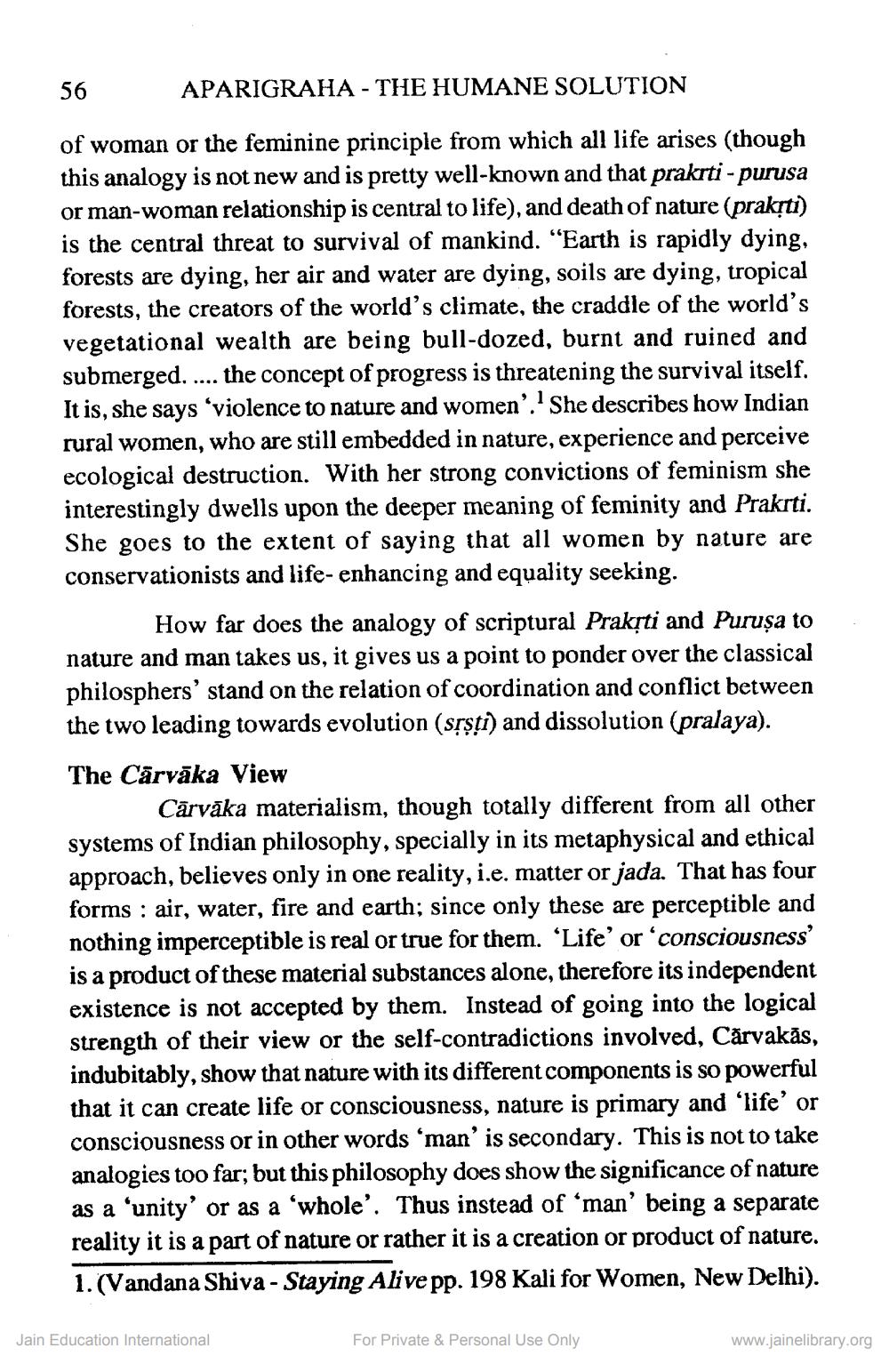________________
APARIGRAHA - THE HUMANE SOLUTION
of woman or the feminine principle from which all life arises (though this analogy is not new and is pretty well-known and that prakrti - purusa or man-woman relationship is central to life), and death of nature (prakṛti) is the central threat to survival of mankind. "Earth is rapidly dying, forests are dying, her air and water are dying, soils are dying, tropical forests, the creators of the world's climate, the craddle of the world's vegetational wealth are being bull-dozed, burnt and ruined and submerged..... the concept of progress is threatening the survival itself. It is, she says 'violence to nature and women'. She describes how Indian rural women, who are still embedded in nature, experience and perceive ecological destruction. With her strong convictions of feminism she interestingly dwells upon the deeper meaning of feminity and Prakrti. She goes to the extent of saying that all women by nature are conservationists and life-enhancing and equality seeking.
56
How far does the analogy of scriptural Prakṛti and Puruşa to nature and man takes us, it gives us a point to ponder over the classical philosphers' stand on the relation of coordination and conflict between the two leading towards evolution (sṛṣṭi) and dissolution (pralaya).
The Carvaka View
Cārvāka materialism, though totally different from all other systems of Indian philosophy, specially in its metaphysical and ethical approach, believes only in one reality, i.e. matter or jada. That has four forms air, water, fire and earth; since only these are perceptible and nothing imperceptible is real or true for them. 'Life' or 'consciousness' is a product of these material substances alone, therefore its independent existence is not accepted by them. Instead of going into the logical strength of their view or the self-contradictions involved, Carvakās, indubitably, show that nature with its different components is so powerful that it can create life or consciousness, nature is primary and 'life' or consciousness or in other words 'man' is secondary. This is not to take analogies too far; but this philosophy does show the significance of nature as a 'unity' or as a 'whole'. Thus instead of 'man' being a separate reality it is a part of nature or rather it is a creation or product of nature. 1. (Vandana Shiva - Staying Alive pp. 198 Kali for Women, New Delhi).
Jain Education International
For Private & Personal Use Only
www.jainelibrary.org




